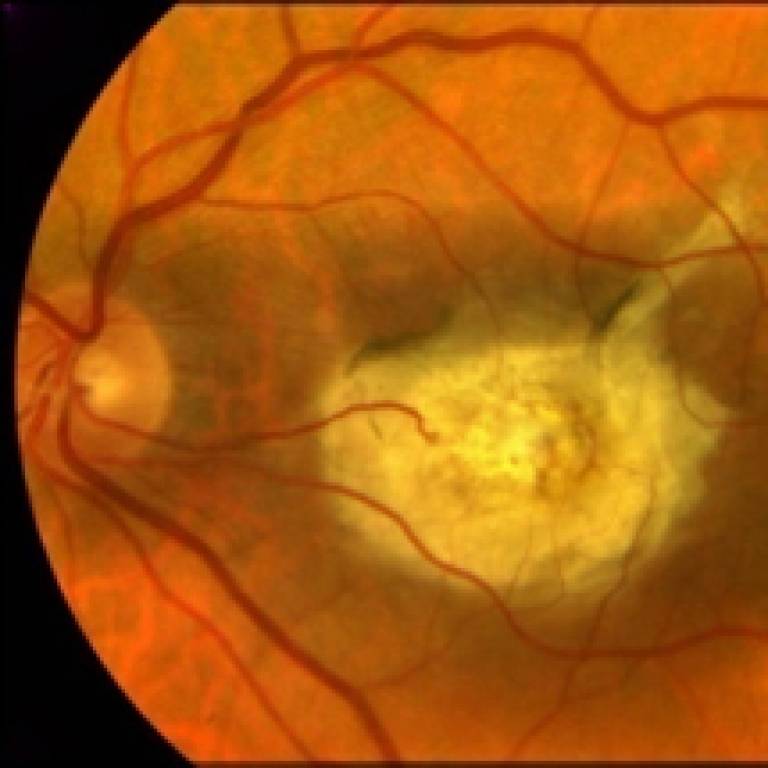UCL leads London project to beat blindness
5 June 2007
The UCL Institute of Ophthalmology is leading a project launched today to develop a therapy that could restore the sight of a quarter of over-60s in the UK.

The London Project to Cure AMD (Age-Related Macular Degeneration) will develop a surgical therapy to stabilise and restore vision in people who go blind due to faulty retinal cells. AMD affects around a quarter of people over the age of 60 in the UK, and 14 million people across Europe.
The condition arises when cells which support the light-sensitive cells in the retina fail, causing people to lose their sight progressively. There is no treatment for this form of AMD. Those with AMD also sometimes develop new blood vessels in the retina, which then leak fluid (known as 'wet AMD'). The treatments available for this type of the condition are only suitable for some patients and are often only temporary.
The radical approach of the London Project to Cure AMD will involve producing a cell replacement therapy from human embryonic stem cells. Trials using patients' own cells have proved that this approach can work.
The London Project to Cure AMD is supported by a £4m private donation. The UCL Institute of Ophthalmology's partners in the project are Moorfields Eye Hospital and the University of Sheffield.
Professor Pete Coffey, UCL Institute of Ophthalmology and director on the London Project, said: "The London Project aims to deliver treatment for a disease which has no alternative therapy. Using stem cells - which are far more adaptable - can only improve success of what has already been achieved and in addition establish this as a global therapy.
"This is achievable as a result of bringing together a number of groups who previously were trying to solve the same problem in isolation. The Project aims to engage scientists, clinicians and the public to ensure success through actively attracting and promoting the inclusion of other laboratories, hospitals and institutions by an open access policy and by informing the public of progress."
Professor Ed Byrne, Dean of the UCL Faculty of Biomedical Sciences, said: "The launch of The London Project to Cure AMD reinforces UCL's position at the forefront of stem cell research in the UK and beyond. We hope that like-minded individuals and organisations will continue to donate funds to world-class research projects such as this, which have the capability of developing life-changing treatments for diseases such as AMD."
To find out more, follow the links at the bottom of this article.
Image 1: An eye affected by Age-Related Macular Degeneration
Image 2: An eye after treatment
 Close
Close

